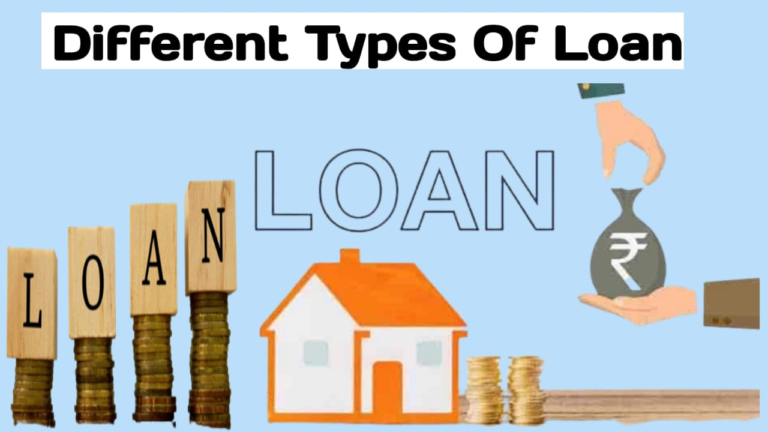HOME EQUITY LOAN

A home equity loan, also known as a second mortgage, is a type of loan that allows homeowners to borrow money against the equity they have built up in their property. Here are some key points about home equity loans:
Definition: A home equity loan is a loan secured by the value of a homeowner’s equity in their property. Equity is the difference between the property’s market value and the outstanding balance on any existing mortgages or liens. Homeowners can borrow against this equity, typically receiving a lump sum loan amount.
Uses: Home equity loans can be used for various purposes. Some common uses include:
Home improvements or renovations: Many homeowners use home equity loans to fund repairs, upgrades, or additions to their property, which can potentially increase its value.
Debt consolidation: Homeowners may choose to use a home equity loan to consolidate high-interest debts, such as credit card debts or personal loans, into one lower-interest loan.
Education expenses: Home equity loans can be used to cover education costs, such as tuition fees or educational expenses for oneself or family members.
Major purchases: Some homeowners use home equity loans for significant purchases, such as buying a car, financing a vacation, or starting a business.
Loan Structure: Home equity loans typically have fixed interest rates and repayment terms. The interest rate is usually higher than the primary mortgage rate but lower than rates for unsecured loans (like personal loans or credit cards) since the loan is secured by the property. The repayment period can vary, but it is commonly structured as a term loan with regular monthly payments over a set period, such as 5, 10, or 15 years.
Loan Amount: The loan amount available through a home equity loan depends on the appraised value of the property and the amount of equity the homeowner has built up. Lenders usually have limits on the loan-to-value ratio (LTV), which is the percentage of the property’s appraised value that can be borrowed. LTV limits vary by lender but are typically around 80% to 90% of the property’s value.
Benefits: Home equity loans offer several potential advantages:
Lower interest rates: Home equity loans often have lower interest rates compared to unsecured loans, such as personal loans or credit cards, making them a potentially cost-effective borrowing option.
Tax benefits: In some countries, the interest paid on a home equity loan may be tax-deductible if the funds are used for home improvements. However, tax regulations can vary, so it’s essential to consult with a tax advisor to understand the specific rules and eligibility criteria.
Access to larger funds: Homeowners with substantial equity in their property may be able to access larger loan amounts compared to unsecured loans.
Risks and Considerations: It’s important to carefully consider the following aspects before taking out a home equity loan:
Risk of foreclosure: Since a home equity loan is secured by the property, failure to repay the loan can result in the lender foreclosing on the property.
Fees and closing costs: Home equity loans may involve various fees, such as application fees, appraisal fees, and closing costs. It’s essential to understand these costs and factor them into the overall loan expenses.
Increased debt burden: Taking on additional debt through a home equity loan increases the overall debt load. It’s important to ensure that the loan payments can be comfortably managed within the household budget.
Market fluctuations: Changes in the property market can affect the value of the property and the amount of equity available. Economic conditions and property market trends should be considered when assessing the potential risks and benefits of a home equity loan.
It’s important to note that home equity loans can vary in terms and conditions based on the lender and the jurisdiction in which the property is located. It is advisable to consult with a financial advisor or mortgage specialist to understand the specific requirements, eligibility criteria, and potential implications of a home equity loan in your particular situation.
Types of Home Equity Loans: There are two primary types of home equity loans:
Traditional Home Equity Loan: With a traditional home equity loan, borrowers receive a lump sum of money upfront and repay it over a fixed term, typically with a fixed interest rate. Monthly payments are made for the duration of the loan term.
Home Equity Line of Credit (HELOC): A HELOC is a revolving line of credit that allows homeowners to borrow against their equity as needed, similar to a credit card. Borrowers can access funds up to a predetermined credit limit during the draw period, which is generally several years. During this time, borrowers make interest-only payments on the amount borrowed. After the draw period ends, a repayment period begins, during which both principal and interest payments are made.
Loan-to-Value Ratio (LTV): The loan-to-value ratio is an important factor in determining the amount a homeowner can borrow. It is calculated by dividing the outstanding mortgage balance plus the home equity loan amount by the appraised value of the property. Lenders often impose limits on the LTV, typically ranging from 80% to 90%. For example, if a property is appraised at $500,000 and the outstanding mortgage balance is $300,000, a lender with an 80% LTV limit would allow a home equity loan of up to $100,000 ($500,000 x 0.8 – $300,000).
Equity Requirements: To qualify for a home equity loan, homeowners must have sufficient equity in their property. Most lenders require a minimum equity threshold, usually around 20%. For example, if a property is appraised at $500,000, the homeowner would need to have at least $100,000 in equity ($500,000 x 0.2) to be eligible for a home equity loan.
Application and Approval Process: Applying for a home equity loan typically involves submitting an application to the lender, which includes providing details about the property, income, credit history, and the desired loan amount. The lender will assess the application, review the property’s value, and evaluate the borrower’s creditworthiness. The approval process may also involve a property appraisal and other documentation requirements. If approved, the borrower will receive the loan terms and conditions for review and acceptance.
Repayment and Interest: Home equity loans have fixed interest rates, meaning the interest rate remains the same throughout the loan term. Monthly payments consist of both principal and interest, allowing borrowers to steadily repay the loan over time. The interest paid on a home equity loan may be tax-deductible in some jurisdictions if the funds are used for home improvements. However, tax regulations can vary, so it’s important to consult with a tax advisor regarding the specific rules and eligibility criteria.
Risks and Considerations: It’s important to carefully consider the following factors when contemplating a home equity loan:
Risk of foreclosure: Defaulting on a home equity loan can result in the lender foreclosing on the property. It’s crucial to ensure that the loan payments can be comfortably managed within the borrower’s financial situation.
Interest costs: While home equity loan interest rates are generally lower than those of unsecured loans, borrowers should be aware of the total interest costs over the loan term. Comparing different loan offers and understanding the long-term financial implications is essential.
Property value fluctuations: Changes in the property market can impact the value of the property and, consequently, the available equity. Borrowers should be mindful of potential market fluctuations when considering a home equity loan.
Other options: Before pursuing a home equity loan, it’s advisable to explore alternative options for borrowing, such as personal loans or lines of credit. Each option has its own advantages and considerations, and it’s crucial to select the one that best suits your needs and financial circumstances.
As always, it’s important to consult with financial advisors, mortgage specialists, or lending institutions to obtain personalized advice and guidance based on your specific situation and goals. They can provide detailed information about the loan terms, eligibility criteria, and potential risks associated with home equity loans.





